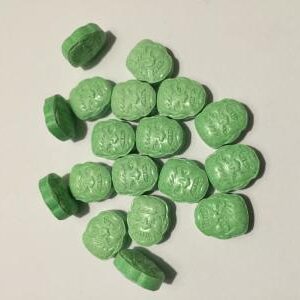What Is MDMA?
MDMA is a psychoactive drug also known as “Molly” or ecstasy. It’s an empathogen or entactogen—a psychoactive drug that produces feelings of empathy and emotional closeness to others. MDMA acts as both a stimulant and a psychedelic. The effects are similar to those produced by amphetamines (speed). Still, MDMA is slower acting, with more subtle changes in mood and perception than other stimulants such as cocaine or methamphetamine.
What Are the Effects of MDMA Use?
The effects of MDMA can vary widely from person to person, and the experience will be different for everyone. If you have been working under the influence of an MDMA, you may believe it’s not apparent to your professional contacts. The truth is, people you know may have already detected your drug use on occasion.
Although mild, the hallucinogenic properties of MDMA can be noticeable.
MDMA is a hallucinogen, meaning it causes hallucinations. While experiencing hallucinations, you may feel anxious or paranoid, especially if you mix MDMA with other drugs. You may react unexpectedly to your environment or behave in ways that appear strange to others.
MDMA use can intensify mental health issues.
It’s possible to feel depressed following MDMA use. However, for people with a history of depression or anxiety, these conditions can become more severe following drug use.
MDMA use can lead to physical and cognitive issues.
Fatigue and memory loss are common symptoms associated with using this drug regularly over long periods.
MDMA use can lead to more severe issues.
It’s essential to remember that “Molly” carries all of the same risks as any other form of amphetamine-based drugs, including death from heat stroke and heart failure due to increased body temperature. In moderate doses, ecstasy acts as a stimulant; in high doses, it acts as a hallucinogen; and in extremely high doses, it causes convulsions and death by cardiac arrest.
MDMA can damage neurons containing serotonin.
MDMA affects the brain’s serotonin system and can damage neurons containing serotonin by depleting them of their supply of this neurotransmitter.
How Long Do the Effects of MDMA Last?
The onset of MDMA effects is usually within 45 minutes. During that time, some people may take a second dose before the altered sensations begin. A dose can last anywhere from 3-6 hours. You may remember the first time you took MDMA left you feeling too warm or too cold, nauseous, dizzy, and experiencing muscle cramps. If you mixed it with other drugs during your first use, you might have felt like you were having a heart attack.
buy mdma
buy mdma
buy mdma
buy mdma
buy mdma
buy mdma
buy mdma
buy mdma
buy mdma
buy mdma
buy mdma











